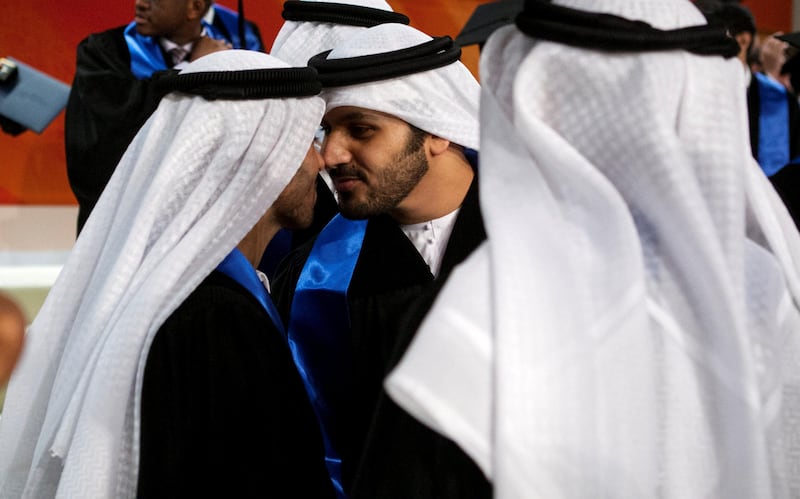Saudi Arabia and the UAE have both recently reached out to Iraq – primarily in the business domain – in an effort to improve relations with the Arab state.
Using economic engagement as a foundation for stronger strategic ties is a sound policy, as international commercial exchange has historically been a key driver of global peace and prosperity.
However, Saudi and Emirati policymakers have many options on how to rebuild their ties with Iraq, what are some of the most attractive?
In the soft power manual, to get the most out of economic ties it is critical that they involve citizens on both sides of the relationships and not just foreign representatives of the two countries.
In virtually every country, this seems like a redundant point of emphasis, since citizens dominate the economy.
When China increases its trade with the United States, this inevitably implies increasing interactions between Chinese and American citizens as Chinese companies are staffed almost exclusively by Chinese citizens and the same is true of American companies.
_______________
Read more:
[ Economics 101: Terrorism rarely destroys tourism for good ]
[ Economics 101: Why did Mayweather earn so much more than McGregor? ]
[ Economics 101: Sharjah science park research sets finely finessed example ]
_______________
But in the Arabian Gulf countries, the reverse is often true: companies are dominated by foreign workers at every level of the skill ladder.
Thus, while an Emirati trade delegation will comprise exclusively Emirati citizens, many of whom hold senior positions in the organisations that they represent, when it comes to the execution of a contract, on the Emirati side, one might find that foreigners become the day-to-day points of contact, since they represent more than 80 per cent of the UAE workforce.
Commercially, this distinction is of no consequence, but in the soft power domain, if one wants business interests to become effective channels for exerting geo-political influence, there needs to be a robust, day-to-day relationship between Emirati citizens and their Iraqi counterparts, unmediated by foreigners who are doing their jobs properly without having a stake in the UAE's foreign relations. Direct human contact is how mutual affinity is established and maintained – consider how much stronger your face-to-face friendships are than those acquired exclusively over social media.
Therefore, both Saudi Arabia and the UAE should consider focusing their efforts on nurturing business relations with Iraq on the sectors and companies that are staffed overwhelmingly by Saudis and Emiratis.
Moreover, they should emphasise agreements where the mutual economic benefits depend upon the establishment of high frequency, physical bonds between citizens on both sides.
If that happens to be in the petrochemicals sector, for example, then Saudi and Emirati engineers should be the hands on the deck from the Gulf side, with foreigners playing a support role at best. This should not be interpreted as xenophobia, rather, it represents an attempt at using your citizens as your foreign policy ambassadors – a normal state of affairs.
Maximising soft power also requires building civil society relationships that complement and reinforce those between the political and business leaders of both countries.
The weakness of autonomous civil society bonds between Saudi Arabia and the US was a contributing factor to congress passing the justice against sponsors of terrorism act last year, enabling US victims of the September 11 terrorist attacks to sue the kingdom.
Deeper day-to-day ties between ordinary Americans and Saudis would quickly dispel the myth that the latter are supporters of terrorism. And even the most banal Turkish television soap opera has managed to enhance the attractiveness of Turkey as a tourist destination for Gulf citizens.
In the context of Gulf-Iraqi relations, there are fertile grounds for the sort of cultural exchange that would complement a deepening of economic ties.
Citizens on both sides speak the same language, practice the same religion, enjoy the same food and follow the same TV shows – but with enough small differences to make engagement worthwhile for both sides.
Saudi and Emirati academics and students should spend time in Iraqi universities, there should be mutual visits by football teams, boy scouts, trade guilds and so on. Once such exchanges become organic and spontaneous, the result will be a greater alignment of the foreign policy interests of Iraq and the Gulf countries, with citizens on both sides reaping the benefits.
Naturally, similar principles apply to all of the Gulf countries' foreign relationships and not just those with Iraq. In the context of the western countries that annually receive thousands of foreign students from Saudi Arabia, UAE and elsewhere, the Arab governments should consider requiring their citizens to volunteer in western non-profits as a condition for getting a scholarship.
Co-authoring at least one paper with foreigners should be a precondition for Gulf PhD students studying in another country at the government's expense.
And there should be a generous prize reserved for the Gulf citizen who successfully convinces contemporary international restaurants to include kabsa in their menu as often as they include pizza, sushi, and quesadilla.
Omar Al Ubaydli is the programme director for international and geo-political studies at Derasat, Bahrain.
We welcome economics questions from our readers via email (omar@omar.ec) or tweet (@omareconomics)






